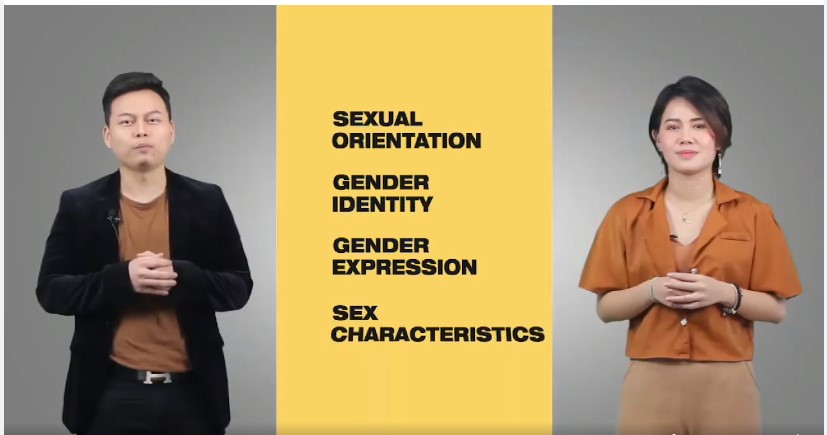Moving LGBT rights up the political agenda in Myanmar
 (c) Myanmar MSM and TGW Network
(c) Myanmar MSM and TGW Network
In Myanmar, if you are lesbian, gay, bisexual or transgender (LGBT) existing laws leave you open to arrest, abuse and extortion at the hands of the police. Not only does this violate LGBT people’s human rights, it sanctions stigma and abuse from others and prevents LGBT people from accessing life-saving HIV services.
All elections provide an opportunity for change. So when it was announced that Myanmar would go to the polls for a general election on 8 November the Myanmar Men Who Have Sex With Men and Transgender Network (MMTN) sprung into action to ensure LGBT rights was an election issue. The network is a member of our Partnership to Inspire, Transform and Connect the HIV response (PITCH).
All of MMTN’s staff and members are from the LGBT community, and in the past few months the network has conducted a highly effective advocacy campaign, targeting electoral candidates and the general public to shift views on sexual orientation, gender identity and expression (SOGIE). By holding workshops for prospective candidates and creating a series of Burmese language social media films on LGBT rights, they have been able to influence crucial online and offline conversations.
“We want elected parliamentarians, and others like the police department and the justice department, to speak up for the LGBT community,” says Daw Htwe Myint, PITCH’s project manager at MMTN. Ko Nay Lin, MMTN’s vice chair, adds: “We are hoping that by advocating to political candidates they will agree on changing the current laws and legislations that discriminate against LGBT people.”
A multipronged approach
MMTN took the strategic decision to conduct advocacy both in person and online.
Persistent lobbying from the network resulted in around 140 candidates from the three main political parties attending socially distanced MMTN workshops in the run up to the election.
“At the workshops we explained SOGIE principles and theory to the candidates and party members, then we asked for their reactions, thoughts and responses,” explains Daw Htwe Myint.
“MMTN representatives then talked about the challenges and legal barriers LGBT people experience and the particular things that a newly elected administration needs to change. At first, many were not familiar with the SOGIE concept and theories. But some showed compassion, recognising the legal barriers and the challenges the LGBT community is experiencing.
“It is not easy to change the law, but some prospective parliamentarians at least recognised the problems and barriers the existing laws cause, and how the police misuse these laws to arbitrarily arrest LGBT people. There was a commitment from some that, if elected, they would work to amend or add subsections so things will change.”
A broad appeal
MMTN also created three short videos highlighting LGBT rights, aimed at a wider audience, and shared them on social media. They say the videos have been successful for a number of reasons. Firstly, they worked with national celebrities; well known singers and a fashion designer, some of whom come from the LGBT community.
This broadened their appeal, especially with young people. They also made the films in Burmese instead of English, a decision that led to the videos being used in surprising and important contexts.
“A lot of other organisations and government ministries have used the videos as an advocacy and learning tool,” says Ko Nay Lin. “It is very easy to show them on a smartphone or a computer and they are free for everyone to use.”
Comprehensive sexuality education
A consultant who provides technical support to the government’s comprehensive sexuality education (CSE) programme for high school and university students has used the videos as a tool to train CSE educators.
The assistant director on HIV and AIDS from Kayin State’s Public Health Department also showed the videos in a training event for health authorities, which included the deputy director of Yangon’s regional health department.
“This is very encouraging,” says Ko Nay Lin. “We understand these videos are helping to bring about more positive affection for LGBT people.”
Making a difference
When the votes were counted, ruling party the National League for Democracy won the majority of seats. Although only one of MMTN’s advocacy targets was elected, the campaign has made contributions, big and small, towards advancing equal rights and better health for LGBT people in Myanmar.
“I have seen changes from the campaign,” says Daw Htwe Myint. “When I was touring through different townships one of the government administrative staff I met told me he has a son who is part of the LGBT community. This government official had thrown his son out of his house, but now he has changed his attitude and is more accepting of his son’s behaviour. This makes me proud.
“Some people who have seen our campaign, before they had a negative reaction to LGBT people. After our campaign I am seeing more people take the attitude that people should be free to live the life they choose.”
Working with new members of parliament
MMTN’s next focus will be to work with newly elected members of parliament to ensure LGBT rights stay on the political agenda during the new government’s term.
“We have a new administration – the cabinet and ministries will be reformed next year – so we will start advocating with these newly assigned staff, who in their first year will be particularly motivated for new things. This will be a major focus. We are planning intense advocacy to show the urgency and the need for change,” says Ko Nay Lin.
“But we also need to give awareness sessions to the general public because public perceptions also have to change towards the LGBT community in order to see the change LGBT people want in terms of laws and regulations.
“But I think we’ll get there – we are moving towards more systemic and legal change in the next five years.”
Tags
Gender equalityHuman rightsLGBTMyanmarPITCH

